- Home
- Sarah Woodbury
The Favored Son Page 8
The Favored Son Read online
Page 8
“He is a monk at St. James’s Priory, where I believe you are staying. You could speak to our physician, but he went off with William.” Her chin stuck out. “Few men are more knowledgeable, and you would be wise to accept his judgement.”
Gwen fought a skeptical smile. Lady Mabel’s assessment sounded grossly optimistic, since most castle healers were good for pulling teeth and little else. Midwives generally knew something of herbs and their healing qualities, and most monastery herbalists had the basics in their stock. People like Saran, however, people for whom diagnosing and treatment were an art, were few and far between.
Gareth turned to Roger. “What about the valet?”
“He drowned.”
“So everyone says,” Gareth said, “but you have no body.”
Roger sighed, as if impatient with the need to tell the story. “A boy walking along the bank saw him in the boat, and then when he passed by going the other way a quarter of an hour later, Bernard was gone, leaving his boots in the bottom of the boat. His hat was found washed up on the bank a short distance downstream.” It was almost word for word what Prince Henry had told them.
Mabel’s eyes were sad. “Bernard was fishing in honor of the earl, who loved it.” She shook her head. “He’d had so little time to spare for it in recent years.” She meant the earl, Gwen knew, not the valet.
“Where is the boat now?” Gareth said. “Is it available to be examined?”
Roger shrugged. “It is a boat. I can’t see how there’s anything to discover with it, but you may try. I will speak to—” He stopped. “I was about to say I would speak to Aubrey so he could arrange for it, but of course he’s dead too.” He took in a breath. “Someone will know what has become of it.”
“Could Bernard swim?” Gwen asked, looking for confirmation of what Prince Henry had told them.
Mabel pressed her lips together, implying that she was impatient with the questions. “You should really let him be. He’s probably in the sea by now.” She swept out a hand and said, even more tartly, “Bernard was completely bereft upon my husband’s death. It wouldn’t be the first time grief overthrew a man’s senses and caused him to take his own life.”
Henry had denied the possibility of suicide, and this comment put Mabel again at odds with her nephew. It seemed Henry held multiple opinions that nobody else shared.
Then Mabel’s voice softened. “It isn’t the Christian way, but—” she paused again, and her stern appearance suddenly gave way, like the breaking of a wave upon the beach, and tears filled her voice, “—from the first, I wished I’d died too.” She bent her head.
At Mabel’s sudden tears, Roger looked utterly stricken. Gareth’s feet were also frozen to the floor, but after a quick motion from Gwen, he hastened to her to take Taran, which allowed Gwen to move to Mabel’s side. Gwen was uncertain about whether comforting Mabel was appropriate—or if her comfort would be rebuffed—but grief was grief, and even if every widow dealt with the loss of her husband in her own way, Mabel didn’t have to be alone with hers.
So Gwen went down on one knee and placed her hand hesitantly on Mabel’s shoulder. Mabel didn’t dismiss her, and as she continued to weep, Roger brought Gwen a chair to put next to Mabel’s. Throwing caution to the winds, Gwen sat and drew the older woman into her arms.
With that, the storm that had been building let loose, and the real tears came. With a flick of one hand behind Mabel’s back, Gwen dismissed both men from the room, and they left with haste. It was custom to say that men feared a woman’s tears more than battle, but in this case, it was true. Even though a part of Gwen herself feared this kind of grief, never again wanting to feel the way Mabel did, she didn’t recoil from it. She’d lived it since she was ten years old when her mother died, and while she’d experienced loss in the interim, her grief had been renewed upon Rhun’s death a year ago.
The longer Mabel’s weeping continued, the more difficult Gwen found it to blink back her own tears that wanted to fall in sympathy. She struggled to swallow them down and simply act as a rock for Mabel, who was holding onto Gwen so tightly she’d caught the back of Gwen’s cloak in her fists, giving Gwen no chance to draw away even had she a mind to.
“I loved him, you see,” Mabel said, still holding on.
“I know.”
Chapter Eight
Llelo
“You handled those people very well,” Hamelin said, in what Llelo interpreted as a clear attempt to make him feel better.
“You handled them well. I completely froze.”
“Still, you managed it in the end.”
“I’m making it up as I go along, I assure you.”
“You’d do better if you dressed the part.” Hamelin put a hand on Llelo’s arm to slow his progress across the inner ward. “Your French is good enough for an Englishman. Nobody need know you’re Welsh.”
Llelo took in a breath, surprised at the insult. But then, as he looked into Hamelin’s face, he understood that Hamelin had spoken innocently and would be surprised to learn that Llelo was bothered by what he’d just said. That recognition slowed his reaction, and he took in another breath before speaking. He wanted Hamelin’s cooperation and, truth be told, his companionship.
So instead of getting angry he said simply, “I am not ashamed of who I am.”
Hamelin’s expression faltered. “I didn’t mean—I didn’t intend—”
“I know you didn’t, but imagine you’d come to Gwynedd, and similar words had come from my mouth instead of yours?”
Hamelin grunted, and Llelo could tell he was genuinely thinking about what Llelo had suggested. He wasn’t a bad person, just ignorant, which he proved a moment later when he bowed and said, “Please accept my apologies.”
“There is much we don’t understand about each other. Allowances must be made ... on both sides.” Llelo started walking again.
Hamelin took some extra steps to come abreast, and they walked in silence for a few moments. Gradually, their breathing eased and their postures became more companionable. Llelo decided it was up to him to change the subject, as a peace offering. “I would be surprised if any of those people in there come forward to tell us anything.”
Hamelin had fallen into a long-legged saunter that Llelo couldn’t help but admire. “Earl Robert was beloved. It may look as if nobody was open to your query, but inside, people are worried. You may be surprised at what comes from this.”
“That’s what murder does,” Llelo said, and then at Hamelin’s inquiring look added, “It exposes a community, divides it at times, and unites it at others. Nobody can know of a murder and remain impartial.”
“I believe you.” Hamelin looked at him sideways. “Is that your father speaking, or do you know this from your own experience?”
“Both. I started out at my father’s side, of course—and my mother’s—but I have investigated deaths myself. Once. Mostly I have watched and learned.”
“From the best, I understand.” Hamelin’s expression turned thoughtful. “I admit to having been skeptical when my brother insisted that murder had been done. Even with three deaths at Bristol it did not seem obvious to me. But now I feel like I must assume it.” They’d come across the inner ward and arrived at the gatehouse.
“My lord says never to assume.” Llelo came to a halt at Hamelin’s side and looked up at the towers that confronted them. The stones of the inner curtain wall were thirty feet high, the battlements crenellated in the same fashion as the keep, and every gatehouse had a fair complement of portcullises and murder holes. “Let the facts speak for themselves, and you will never have to.”
“Aren’t you making an assumption that Sir Aubrey’s death was murder, which is why we are investigating it?”
Their steps crunched on the gravel. To the right of the first portcullis was the entrance to the guardroom that Thomas had indicated. Llelo’s stomach growled with hunger, and he was sorry it didn’t look as if he was going to get to eat until the evening meal. He’d come
a long way since the sight of Sir Aubrey’s head a few hours ago had made him think he might never want to eat again.
“Yes, but even if the stone hadn’t been chiseled out of position, it is equally an assumption that he was not murdered. In that case, better to err on the side of caution and investigate. If Sir Aubrey’s death was an accident, we have lost nothing but time, but if it was intentional—” Llelo broke off as two guards turned to look at them. Their gaze was similar to that of the people in the foyer of the keep: disdainful and curious at the same time.
“Indeed.” Hamelin elbowed him in the ribs to urge him forward.
As Hamelin and Llelo arrived on the threshold of the captain’s office, Harold was striding around the center table, cursing under his breath. The door had been left open, giving Llelo and Hamelin a clear view of the captain’s stiff posture and grim expression before they made themselves known. Beside him, Llelo felt Hamelin brace himself for the interview, and Llelo took a deep breath as well.
At the sight of the young men, however, Harold stopped pacing and turned to look at them. As usual, his first words were directed at Hamelin. “My lord, what brings you here in this grave hour?”
Hamelin gestured, again making sure that Llelo preceded him. If he kept it up, Llelo might start to believe he really respected him. On impulse Llelo stuck out his arm. “I am Llelo ap Gareth. My father is captain of the guard for Prince Hywel of Gwynedd.”
To his credit, Harold didn’t hesitate and grasped Llelo’s forearm. “Harold Edgarson, at your service.”
“You’re Saxon?”
“Are you surprised to see one rise so high in Earl Robert’s service? Out here, we’re all English. Earl Robert rewarded those who were capable. I’m hoping his son will do the same.”
“We have been charged with speaking to the guards about the circumstances surrounding Sir Aubrey’s death,” Llelo said.
Harold sighed. “If I’d been doing my job, Aubrey would still be alive, but as it is ...” He sat heavily in his chair.
Llelo stood awkwardly before him, disconcerted by the man’s frankness. “May I ask you to elaborate?”
“He was only crossing that courtyard to check up on me.”
“Because ...” Llelo left his question deliberately hanging.
“Because I was drinking too much. Although now I’m not, Aubrey wanted to be sure.” He snorted. “You are surprised I admit this openly? Some would tell me to keep my mouth shut, but I know the prince is asking questions, and I will answer them. In truth, I don’t see what there is to investigate. Nobody could have stopped that stone from falling.”
“While that is true, we must still inquire.” Hamelin shot a look at Llelo, asking permission to say more. “Nobody reported that part of the stonework as weak?”
“Not to me—and evidently not to Sir Aubrey either.”
“We’d like to ask each of your men in turn if they saw anyone on the wall-walk before the meeting,” Llelo said, “or if any strangers entered the castle in the hours beforehand.”
Harold narrowed his eyes at Llelo. “Other than you?”
It was a fair point, and Llelo raised his eyebrows to acknowledge it. “Other than us.”
“Why does it matter?”
Llelo thought it was obvious, but he answered anyway, just to make everything as clear as possible. “In case someone made the stone fall.” He left off the of course. It was on the tip of his tongue, but he managed to keep it back at the last moment.
Harold studied his face. “You think this was murder too? Bad enough to spread the rumor that Earl Robert was killed.” Men like Harold were the foundation of any baron’s retinue. He showed all deference to those in authority above him, but he had clear opinions, which most often he was forced to keep to himself. It was a wise lord who listened to such a man when he talked.
In this instance, however, Harold was Earl William’s man, not Prince Henry’s, and if he was as loyal to William as he’d been to Robert, the flash of disdain could have been for Prince Henry’s suspicions—or equally for Henry himself.
Llelo pressed his lips together for a moment, debating how to respond. Harold was an established soldier akin to Evan. He wouldn’t look on a fifteen-year-old boy as someone with any authority or wisdom. Still, it was Llelo’s job to ask questions, and for that reason, he had to continue. It wouldn’t do to go back to his father with his questions unasked. “It is not my place to believe or disbelieve. Prince Henry asked us to investigate, and that is what we are doing.”
Harold’s expression cleared, and he sat up straighter. “Quite right.”
“May we speak with those on duty this morning?” Hamelin asked.
They were back to Harold’s initial regrets. “Nobody was on any parapet but those above the main gatehouses. The meeting was for a quarter hour only,” he added, somewhat defensively.
“This meeting occurs every day at the same time?” Llelo asked, just to confirm what Thomas had told them.
“It does, and before you imply that no soldier should be such a creature of habit, this routine was condoned by both Earl Robert and Sir Aubrey. They agreed that the benefit of having every man aware of his tasks and coordinated with every other on duty was worth the slight chance of mischief.” He grunted. “I will be sorry if it cost Sir Aubrey his life.”
“The mason says the stone was deliberately loosened,” Hamelin said. “It was murder.”
Llelo’s mouth dropped open. He hadn’t remembered to tell Hamelin that important information like that should be held back if at all possible.
The color drained from Harold’s face. “You tell me truly?”
“Yes.” Llelo tried not to glare at Hamelin, but his shoulders had stiffened. “Though I can also say that if a killer is determined, he will find a way. The quarter of an hour was opportunity, nothing more. Sir Aubrey could just as likely have been set upon in a dark alley in the town, or in his chambers, or in some other circumstance.”
Harold tapped the tips of his fingers on the table before him. “It is common knowledge that I pull most of the men off the battlements for our meeting. The fact that I do it every day—three times a day, in fact—is beside the point.” He paused. “Or maybe that is the point.”
Llelo knew he had to tread lightly, and he constructed his next question carefully in his head before he asked it. “Any good captain calls his men together daily to assign duties.”
“Of course they do, or I wouldn’t have done it!” Harold was on his feet again, back to pacing. He threw out a hand. “Excuses after the fact are worthless, I know, but if I had any defense, it is that we have done this for years, particularly since Earl Robert returned from his captivity. We have lost so many men.” He shook his head. “These boys are young, untrained. They need guidance.” He looked up. “In a way I’m glad they were all here, so none can be blamed.”
Llelo wanted to say that his father was not one to accuse a man without evidence, but he didn’t think Harold was listening to him anymore.
“And, of course, we did it for Sir Aubrey.”
Llelo blinked. “I’m sorry. Why would that be?” According to the guard—and by Harold’s own surprising admission—they’d done it for Harold.
“He—” Harold stopped, his eyes flicking from Llelo to Hamelin and back again. “You don’t know?”
Llelo spread his hands wide. “No.”
“Sir Aubrey’s wits weren’t ... as sharp as they used to be. It was helpful to him to have the castle run on a strict schedule, unchanging, even.”
Llelo rubbed his chin. “He was having trouble with his memory?”
“Yes.” Harold looked relieved that Llelo had spoken straightforwardly, and with that business done, he turned to Hamelin. “I have doubled the watch and the guards around the prince. I have already spoken to Charles, and he will personally taste any dish that reaches the prince’s table. Accidents or murders, we don’t want any more.”
Hamelin canted his head. “Thank you. I hadn’t tho
ught of it.”
Harold gritted his teeth. “It is my place to think of it, though I would never have imagined such precautions necessary inside the castle.”
Llelo would have thought it was precisely his job to imagine those very things, but instead of saying so, he cleared his throat, wanting to get back to Sir Aubrey. “Do you have any further thoughts about what happened today—or these other deaths, for that matter?”
Harold shook his head. “No, and none of the men in my charge do either. They’re good lads, if young.”
“How much interaction did they have with Sir Aubrey or the earl’s servants?”
Harold’s chin firmed. “I know the prince believes murder happened here, but Earl Robert died after being ill for most of this past year. His maid died because her heart gave out; and Bernard drowned.”
“Have such a string of deaths ever happened before at Bristol?” Llelo asked.
Harold didn’t like the question. He was on the edge of patience. “No.” He flicked his fingers. “It is a run of bad luck, I do admit, but nothing that should cause such alarm in the prince. He has many other concerns that should have his attention, surely.”
Llelo tried a different tack. “You are a soldier, sir, and responsible for many men. If several died within weeks of each other, even if all really were accidents, your men might grow concerned that God was punishing them, or that something wasn’t right at Bristol. Wouldn’t you see it as your duty to dispel their concerns?”
“Perhaps.” Harold pressed his lips together. “The people are uneasy.”
“That’s all this is,” Hamelin stepped in. “Bristol is a stronghold from which Prince Henry intends to retake England for his mother. If the people here are fearful, their uncertainties could spread to his other allies. Any rumor that his mother has given up her claim or that our advantages will no longer be pressed must be squelched immediately.”
“That does make a certain amount of sense. It is well that the prince is thinking so far ahead.” Harold’s eyes turned thoughtful. “Very well—I will make inquiries among my men.”

 The Good Knight
The Good Knight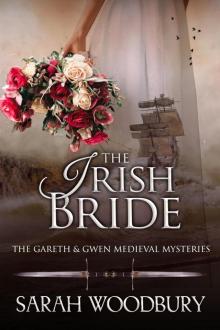 The Irish Bride
The Irish Bride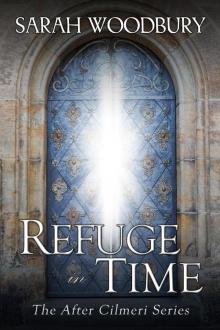 Refuge in Time
Refuge in Time Masters of Time
Masters of Time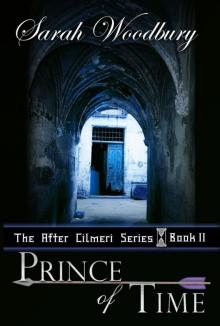 Prince of Time (Book Two in the After Cilmeri series)
Prince of Time (Book Two in the After Cilmeri series)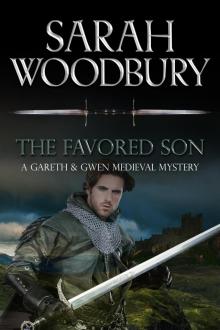 The Favored Son
The Favored Son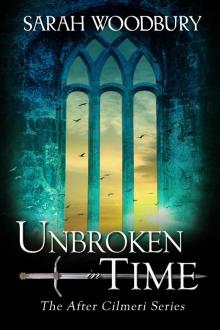 Unbroken in Time
Unbroken in Time![[The Lion of Wales 01.0] Cold My Heart Read online](http://i1.bookreadfree.com/i/03/22/the_lion_of_wales_01_0_cold_my_heart_preview.jpg) [The Lion of Wales 01.0] Cold My Heart
[The Lion of Wales 01.0] Cold My Heart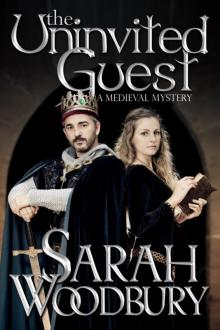 The Uninvited Guest
The Uninvited Guest The Pendragon's Blade (The Last Pendragon Saga Book 2)
The Pendragon's Blade (The Last Pendragon Saga Book 2)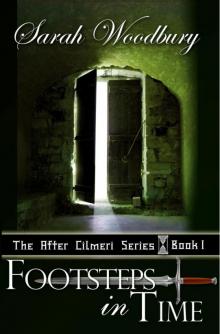 Footsteps in Time
Footsteps in Time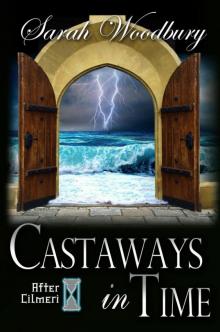 Castaways in Time (The After Cilmeri Series)
Castaways in Time (The After Cilmeri Series) Winds of Time
Winds of Time Of Men and Dragons (The Lion of Wales Book 3)
Of Men and Dragons (The Lion of Wales Book 3) Champions of Time
Champions of Time The Pendragon's Challenge (The Last Pendragon Saga Book 7)
The Pendragon's Challenge (The Last Pendragon Saga Book 7) Rise of the Pendragon (The Last Pendragon Saga Book 6)
Rise of the Pendragon (The Last Pendragon Saga Book 6) The Worthy Soldier
The Worthy Soldier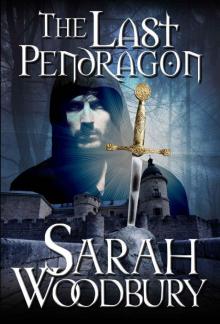 The Last Pendragon (The Last Pendragon Saga Book 1)
The Last Pendragon (The Last Pendragon Saga Book 1)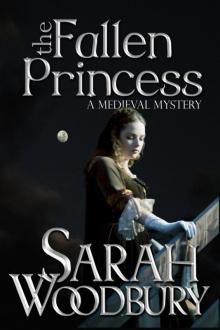 The Fallen Princess
The Fallen Princess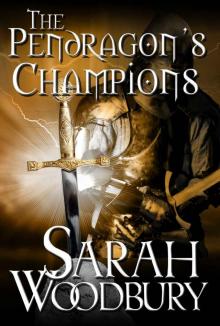 The Pendragon's Champions (The Last Pendragon Saga Book 5)
The Pendragon's Champions (The Last Pendragon Saga Book 5)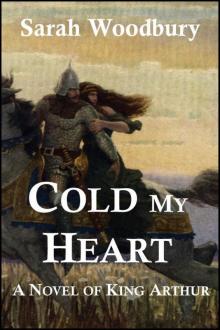 Cold My Heart: A Novel of King Arthur
Cold My Heart: A Novel of King Arthur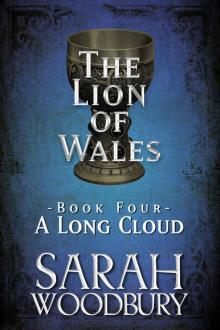 A Long Cloud (The Lion of Wales Book 4)
A Long Cloud (The Lion of Wales Book 4) Frost Against the Hilt (The Lion of Wales Book 5)
Frost Against the Hilt (The Lion of Wales Book 5) Daughter of Time: A Time Travel Romance
Daughter of Time: A Time Travel Romance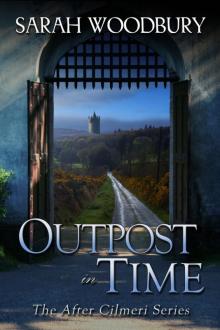 Outpost in Time
Outpost in Time Shades of Time kobo
Shades of Time kobo The Pendragon's Quest (The Last Pendragon Saga Book 4)
The Pendragon's Quest (The Last Pendragon Saga Book 4) The Unexpected Ally
The Unexpected Ally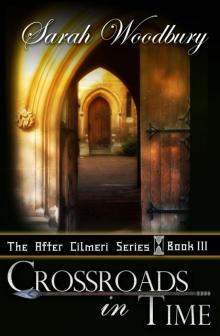 Crossroads in Time (The After Cilmeri Series)
Crossroads in Time (The After Cilmeri Series)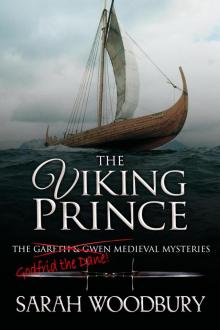 The Viking Prince
The Viking Prince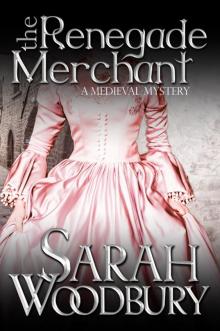 The Renegade Merchant
The Renegade Merchant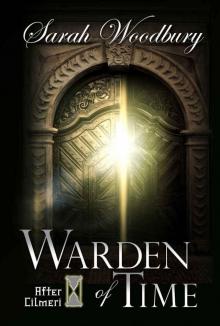 Warden of Time (The After Cilmeri Series Book 8)
Warden of Time (The After Cilmeri Series Book 8)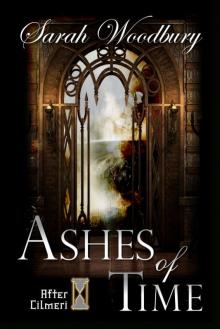 Ashes of Time (The After Cilmeri Series)
Ashes of Time (The After Cilmeri Series)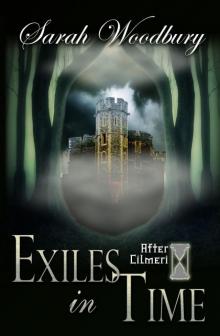 Exiles in Time (The After Cilmeri Series)
Exiles in Time (The After Cilmeri Series)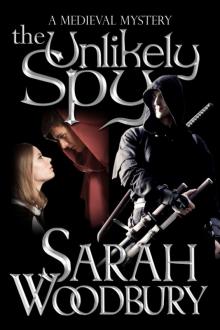 The Unlikely Spy
The Unlikely Spy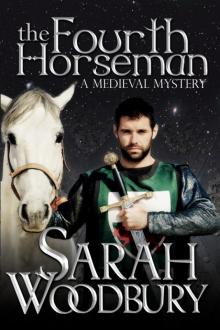 The Fourth Horseman
The Fourth Horseman The Oaken Door (The Lion of Wales Book 2)
The Oaken Door (The Lion of Wales Book 2) Song of the Pendragon (The Last Pendragon Saga Book 3)
Song of the Pendragon (The Last Pendragon Saga Book 3) Champions of Time (The After Cilmeri Series, #13)
Champions of Time (The After Cilmeri Series, #13)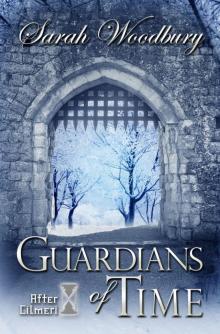 Guardians of Time
Guardians of Time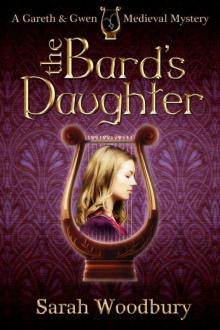 The Bard's Daughter (A Gareth and Gwen Medieval Mystery)
The Bard's Daughter (A Gareth and Gwen Medieval Mystery)